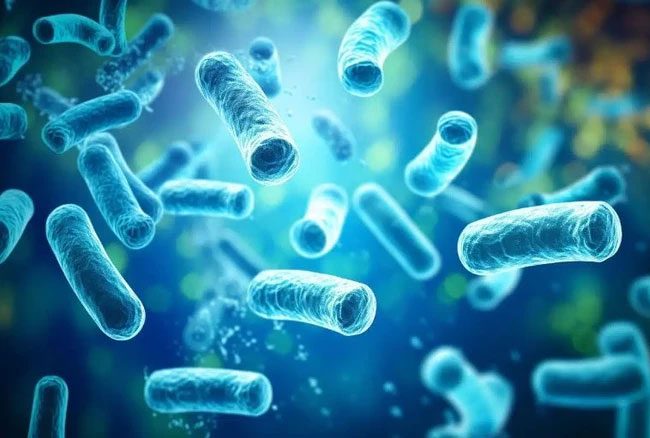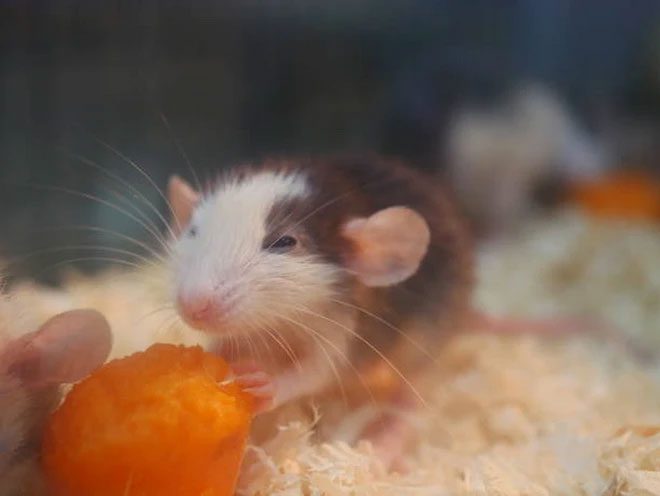Research has shown that Lactobacillus, a type of bacteria found in fermented foods and yogurt, helps maintain the levels of gamma interferon, an important immune mediator that plays a crucial role in stress response and mental health.
Researchers from the University of Virginia School of Medicine have discovered that Lactobacillus assists the body in managing stress and may help prevent depression and anxiety.

Lactobacillus bacteria in fermented foods and yogurt may help the body manage stress. (Photo: iStock).
The study, published in the journal Brain, Behavior, and Immunity, opens new avenues for treating anxiety, depression, and other mental health conditions.
UVA researcher Alban Gaultier and his collaborators emphasized that this finding is significant as it precisely identifies the role of Lactobacillus, distinguishing this microorganism from all the other microbes that naturally reside in and on our bodies.
These microorganisms are collectively known as microbiota, and scientists are striving to study them to combat diseases and improve health.
The latest research from UVA marks a significant advancement in this field, providing scientists with a creative new approach to understand the role of each type of bacterium that may aid in developing new treatment methods for various diseases, both mental and physical.

Our intestines are naturally home to countless bacteria, fungi, and viruses. (Photo: Neuroscience News).
“Our research has clarified how Lactobacillus gut bacteria influence mood disorders by regulating the immune system,” said Professor Gaultier, from the Department of Neuroscience at UVA, the Brain and Glia Immune Center, and the Inter-University Microbiome Initiative.
He further added: “Our research may pave the way for exploring essential treatment methods for anxiety and depression.”
Our intestines serve as a natural habitat for countless bacteria, fungi, and viruses, with microorganisms accounting for up to 57% of the total number of cells in the human body.
This may sound a bit unsettling, even alarming, but scientists state that these tiny organisms and their interactions are crucial for the immune system, physical health, mental health, and other aspects of life.
Dysbiosis in the human microbiome, whether due to illness, poor diet, or other causes, contributes to many diseases and can even promote cancer development. Hence, in recent years, scientists have intensified research on the disease-fighting potential of this microbiota.
Initial studies aimed at manipulating the gut microbiota with beneficial bacteria, known as probiotics, have yielded varied results.
The greatest challenge in this endeavor is the absolute complexity of the microbiome, estimated to include 39 trillion organisms with many different species.
Understanding how each type of bacterium or fungus operates, especially regarding how they interact with other microorganisms and the host, is akin to “finding a needle in a haystack.”
Gaultier and his team took an innovative approach, focusing specifically on Lactobacilli. Previous research from Gaultier’s lab showed that this bacteria could alleviate depression in experimental mice—a highly promising discovery. However, researchers needed to comprehend how this bacterium operates.

Studies have shown that Lactobacilli bacteria can alleviate depression in experimental mice. (Photo: iStock)
“We have known from previous studies that Lactobacillus is beneficial in improving mood disorders and loses effectiveness after psychological stress, but the underlying reasons remain unclear, primarily due to technical barriers related to microbiome research.”
Gaultier and his team decided to continue studying depression using a bacterial consortium known as “Altered Schaedler Flora”, which includes 2 strains of Lactobacillus and 6 other bacterial strains.
Using this rare microbiome, the research team created mice with and without Lactobacillus, without using antibiotics.
Each bacterium missing produced a different outcome. Gaultier and his colleagues could accurately describe how Lactobacilli influenced behavior and how the absence of these bacteria could exacerbate depression and anxiety.
Lactobacilli from the Lactobacillaceae family maintain levels of an immune mediator called gamma interferon, which helps regulate the body’s response to stress and aids in preventing depression.
With this new information, researchers are poised to develop new methods to prevent and treat depression and other mental health conditions, in which Lactobacillus plays an essential role.
For instance, patients struggling with or at high risk of depression may one day take specially formulated probiotic supplements to optimize the levels of beneficial Lactobacillus in their bodies.
Researcher Andrea R. Merchak stated: “With these research results, we have new tools to optimize the development of probiotics, which will accelerate the discovery of new therapies.”
“Most importantly, now we know that maintaining a healthy relationship between Lactobacillus and gamma interferon can be studied to prevent and treat anxiety and depression,” said Merchak.



















































